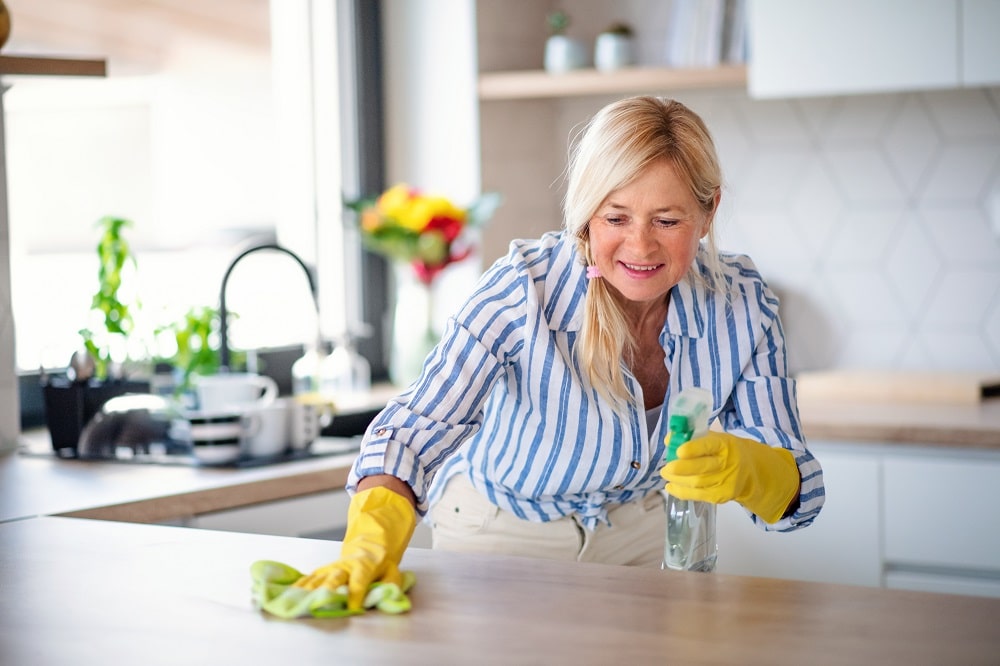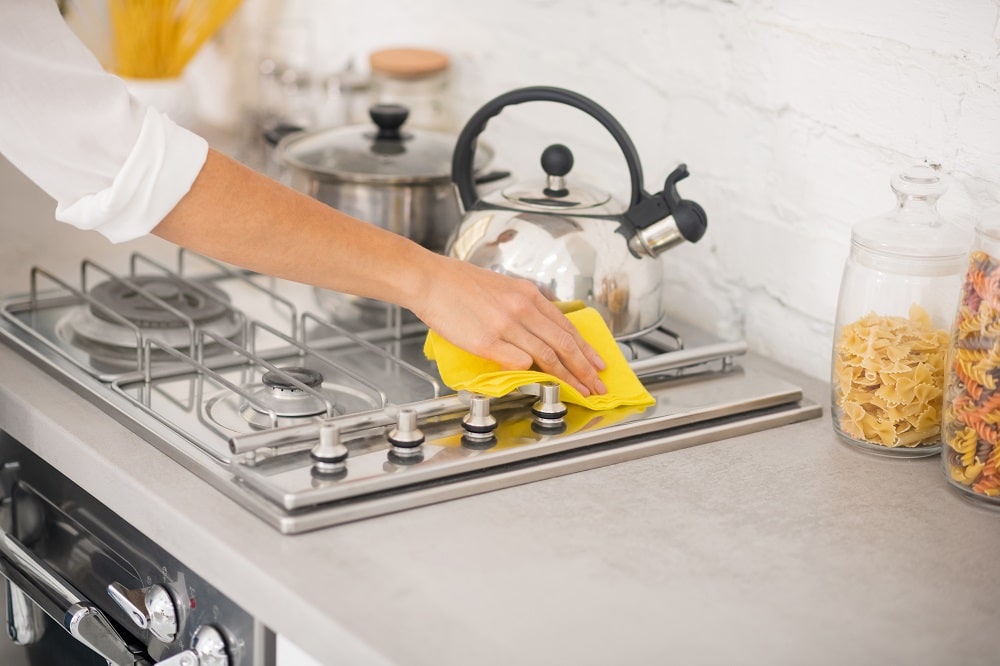One of the places in a home that gets the most traffic is undeniably the kitchen, especially now that families are spending more time at home than usual; this also means that there’s more cooking in the kitchen that goes on in a day. It’s, therefore, not surprising that, at the end of the day (or week), your kitchen becomes one of the dirtiest places in the household. Hence, it’s vital to clean your kitchen.
Organizing a home mostly boils down to personal preference. But this doesn’t mean that there aren’t black-and-white rules. There are golden rules that can help guide you to ensure you’re cleaning your kitchen in the most efficient and accurate way possible. You can find, many of these rules and guides to kitchen cleaning, management, and cooking from KitchenThinker.com, among many other sources. Not only do you want to have a kitchen that looks physically clean, but also one which is safe for food preparation.
In this article, you’ll come across the do’s and don’ts of kitchen cleaning so you can be guided.
The Do’s
These are the do’s to remember when cleaning your kitchen.
1. Empty Your Sink At The End Of Every Day
It’s highly recommended to empty your sink after every cooking or food preparation. But if you have work, children, and other chores to do, it can be overwhelming to regularly wash dishes multiple times a day or empty your sink after every cooking or food preparation.
Moreover, when you let dishes linger on the sink for too long, bacteria from food waste start to build up. In this case, your kitchen will look and smell messy, which is an unpleasant sight to see. When you wake up and the morning can get busy, the last thing you want is to be concerned and worried about packing away dirty dishes.
So, at the very least, make it a point to always empty your sink at the end of every meal. This means taking the time to wash the dishes, dry them, and put them back in the right cabinets before you sleep.
2. Practice Cleaning After Cooking

If you have the time for it anyway, make it a habit to practice cleaning after cooking. This doesn’t necessarily mean a thorough clean, but at least give a good wipe down of your kitchen to prevent the spread of bacteria and unpleasant odors.
To start with, here are some good habits you can apply to practice cleaning as you cook:
- Scrape any food debris into the bin right away and soak your dirty dishes with water, if you’re washing by hand. If time still permits, you can rinse and wash it right away. If you have a dishwasher, then it doesn’t take a lot of effort to actually load your dishwasher.
- Leave your clean dishes to air dry or wipe them with a clean cloth right away.
- If you’re absolutely busy, such as when you’re rushing to work or hosting a party, scrub food debris and soak the hard-to-clean pots and utensils with hot water on the sink.
The list of chores above can even be done while you wait for your dishes to finish cooking. Don’t waste that idle time in the kitchen and be more efficient with your time.
3. Clear Off The Counters At The End Of Every Day
A clear kitchen countertop or island is always a pleasant one to wake up to. Especially after you’ve just hosted a party, it’s always a good idea to clear off your kitchen counters at the end of every day. It doesn’t take much to clear your counters from items you may have dumped and accumulated throughout the day.
For instance, pick up any toys, gadgets, or mail you’ve sorted through in your kitchen island. Return baking supplies, equipment, and other kitchen tools that aren’t meant to be kept on the kitchen countertops. When you make it a habit to clean your counters every day, it’s an easier task to finish in a minute or two, with very little effort needed.
The Don’ts
On the other hand, be sure not to do the following as you clean your kitchen:
- Have One Rag
If you’ve been using the same rag to clean multiple areas and purposes in your home, it’s about time to change that habit. A cardinal rule to follow is don’t use the same rag for multiple purposes in the kitchen or in your household, in general.
Despite rags being washable and reusable, when they’re used inappropriately, they can actually spread germs rather than eliminate them. This is the reason why it’s very important to have one rage for a specific purpose.
For example, have one rag for wiping wet dishes, another to wipe countertops, as well as one for the kitchen floor.
- Forget To Clean The Microwave
If you have a microwave in your kitchen, there’s no denying that it may be one of the most used kitchen appliances. Its convenience makes it easy to heat up meals. But it’s also one of the most neglected. So, as you deep clean your entire kitchen, don’t forget about the microwave. Surely, you wouldn’t want to heat your meals and eat germ-infested dishes all because your microwave itself is dirty.
This is really very simple! If you use a commercial cleaner, then use your trusted cleaning agent to wipe down both the inside and outside of your microwave at least once a week; if you use your microwave more frequently, more than once a week is recommended.
If you prefer a natural way to prevent your food from getting exposed to chemicals, you can squeeze some lemon juice into water and leave it in the microwave for three minutes. As the microwave heats, it’ll condense. When it’s done, all you have to do is wipe up the surface and the food leftovers.
Conclusion
The guide above should be more than enough to make you the master of cleaning your kitchen. As you can see, there are specific rules that, when applied, can save you time wasted on inefficient cleaning. Most importantly, you’re able to rest assured that your kitchen is sanitary enough for cooking and prepping food.
Remember, if you don’t clean your kitchen properly, bacteria and germs can easily proliferate. You wouldn’t want this to happen in a place as important as your kitchen. Start with the strategies above to make your kitchen cleaner and sanitary.

